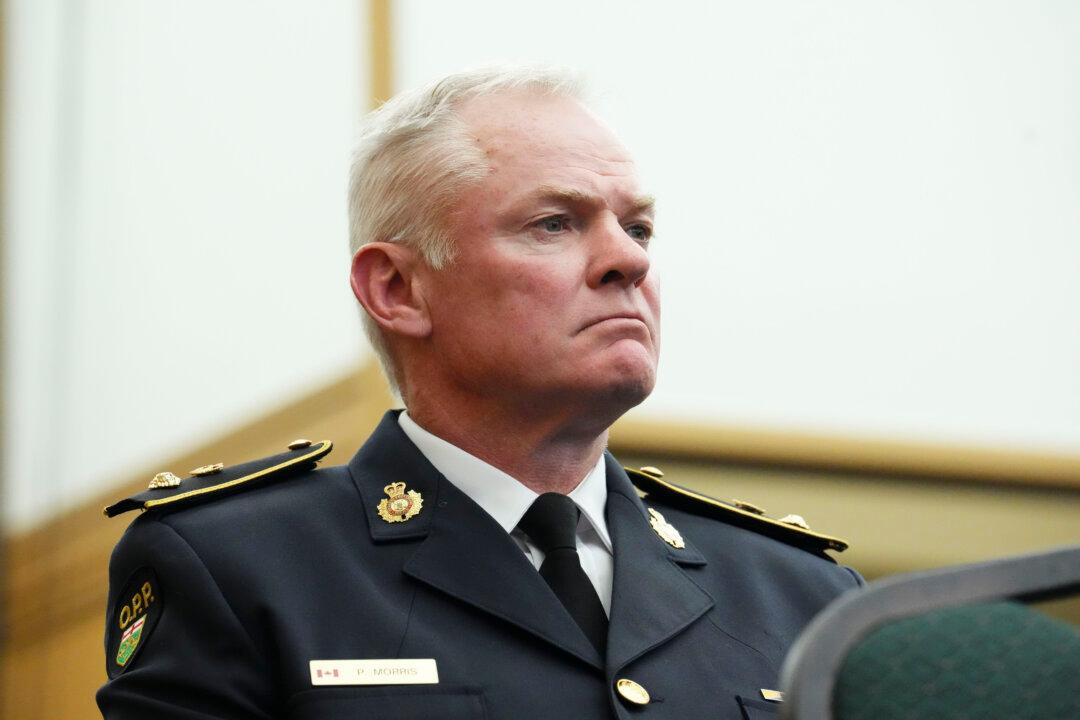The intelligence chief for the Ontario Provincial Police (OPP) told his superior he had concerns about information requests on social movements his unit was receiving from political leaders and other actors during the time of the Freedom Convoy protest last winter.
The OPP’s Provincial Operations Intelligence Bureau (POIB) “is increasingly receiving requests for information, intelligence, open source scrapes, background checks etc on a wide array of societal actors,” wrote Supt. Pat Morris, who oversees the POIB, in an email to OPP Deputy Commissioner Chuck Cox on Feb. 2.





